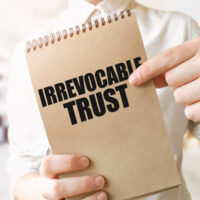3 Dangers That Come With An Irrevocable Trust

Out of all the trusts you can develop, an irrevocable trust is one of the most useful. But, even though this is true, an irrevocable trust comes with a few dangers. These dangers can make managing your estate a little tricky.
Going over the three dangers that come with an irrevocable trust, and speaking with a Florida estate planning lawyer today at the Millhorn Elder Law Planning Group will help you develop a trust that satisfies your estate planning goals.
Danger 01: Your Assets No Longer Belong To You
Every asset you place into an irrevocable trust no longer belongs to you. These assets belong to the trust and, in turn, the trustee who is managing/overseeing your trust.
If you need to assume ownership of the assets within your irrevocable trust, you may have a very difficult time doing so.
Outside of the above, some trusts can be mismanaged. This is not very likely, but it can happen. If you develop an irrevocable trust, make sure to choose a trustee who will do the right thing.
Danger 02: You Cannot Revoke The Trust Or Make Any Changes To The Trust
Just as the name suggests, an irrevocable trust is irrevocable. This means you cannot revoke the trust, after it has been developed/established.
The fact outlined above leads to another point: you cannot make any establishes to an irrevocable trust, due to the irrevocable nature of trust.
If you leave certain assets to a beneficiary and, then, decide that you no longer want to leave assets to this, you may not be able to remove them from the irrevocable trust.
Right before we conclude this section, there is one point to clarify: you can, technically, revoke, and modify, an irrevocable trust. But, the process requires a court order, in most cases, making it very difficult for you to do this.
Danger 03: Your Irrevocable Trust Has Tax Implications
Every irrevocable trust has tax implications. And, in most cases, these implications are as follows: any tax liabilities generated by your assets are no longer your problem, since the assets within your trust no longer belong to you.
In the event that your irrevocable trust is developed properly, you won’t have to worry about any of the problems associated with this. But, if your trust is developed improperly, you could face problems with the IRS.
To go along with the tax implications of your irrevocable trust, your beneficiaries will not have to worry about probate or the debts associated with your assets. This is one of the benefits associated with an irrevocable trust.
Even though the above is very useful, if your trust is developed improperly, your assets may be forced to go through probate. They may also be subject to creditor claims. Both of these can deprive your beneficiaries of their assets.
Speak With A Florida Estate Planning Lawyer Today
If you would like to develop an irrevocable trust, you should talk to someone who can help you. Speak with a Florida estate planning lawyer today and let us help you develop an irrevocable trust that satisfies your goals.
Sources:
law.cornell.edu/wex/irrevocable_trust
law.cornell.edu/wex/creditor


